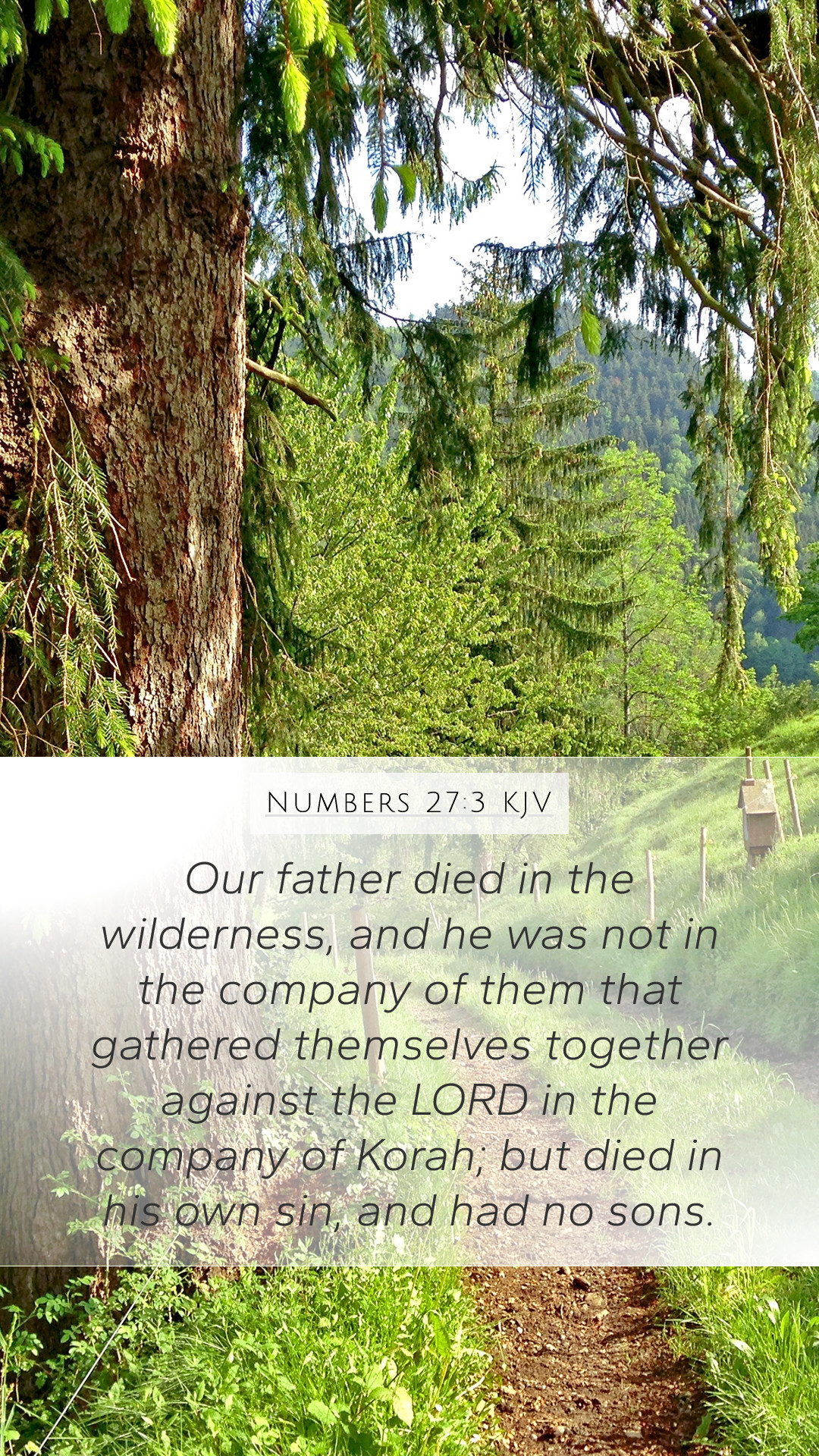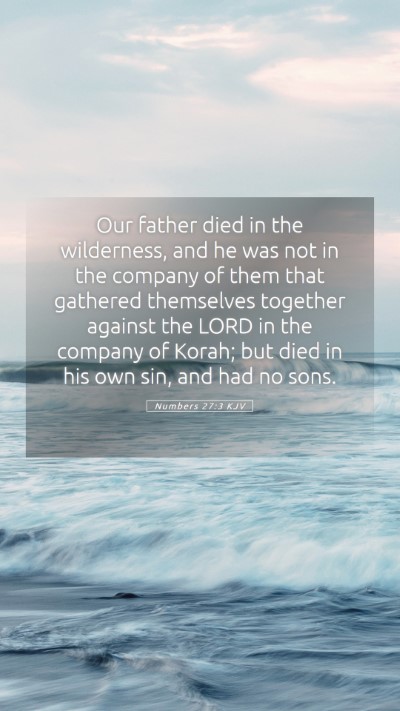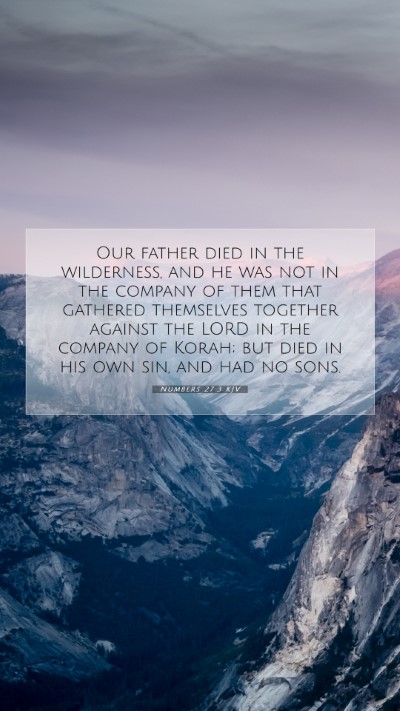Understanding Numbers 27:3: A Comprehensive Bible Verse Commentary
In Numbers 27:3, we encounter a significant plea from the daughters of Zelophehad, which opens a profound discussion on inheritance laws and women's rights in biblical times. This verse is a vital reference in the journey of understanding scripture, and has been interpreted by various scholars over the centuries. Below, we explore the insights from public domain commentaries to provide a thorough explanation of this verse.
Bible Verse: Numbers 27:3
"Our father died in the wilderness, and he was not in the company of those who gathered together against the LORD in the company of Korah; but he died in his own sin, and he had no sons."
Verse Meaning and Commentary
1. Historical Context
This plea emerges in the broader narrative of Israel's journey through the wilderness and highlights the plight of women in a patriarchal society. According to Matthew Henry, the daughters make a reasonable request based on the justice of their father's situation and the absence of male heirs. Their invocation of their father not being among those who sinned shows their desire for righteous judgment.
2. Significance of Their Appeal
Adam Clarke expounds on the implications of this request, noting that the daughters of Zelophehad demonstrate both courage and faith. By presenting their case before Moses and the leaders, they challenge the existing norms regarding inheritance rights, thus exemplifying an early form of advocacy for women's rights in an ancient context.
3. Theological Implications
According to Albert Barnes, this passage underscores God's justice and concern for all individuals, regardless of gender. The daughters' appeal is not merely about inheritance but represents a deeper theological assertion about God's fairness and care. It serves as an invitation to reflect on how God's laws accommodate justice for all, setting a precedent that resonates with modern discussions on equality and rights.
Application and Reflection
The petition of Zelophehad’s daughters transcends its historical setting and prompts contemporary readers to consider how we address issues of equality and justice in our own societies. This verse urges believers to examine personal biases and to advocate for fairness in their communities.
Cross References
- Exodus 34:7 - God's justice and mercy toward individuals.
- Deuteronomy 21:15-17 - Laws of inheritance and the rights of the firstborn.
- Galatians 3:28 - The equality of all individuals in Christ.
Conclusion
Numbers 27:3 serves as a pivotal moment that reflects not only the individual story of Zelophehad’s daughters but also a broader commentary on inheritance, justice, and equality in the eyes of God. As believers explore the bible verse meanings and engage in bible study lessons, this passage provides rich insights into the nature of God's laws and the relevance of justice in our lives.
Further Study
For those involved in bible study groups or exploring online bible study, considering the implications of this verse can lead to deeper discussions on the application of biblical principles in contemporary contexts. This verse invites individuals to think critically about how to interpret Bible verses and apply their lessons to daily life.


